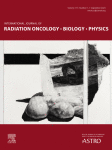EB I think your posts sell radiotherapy short in GBM. RT improves overall survival in glioblastoma. Full stop. Quality of life during glioblastoma RT is not bad either and side effects are typically limited.
I constantly deal with neuro oncs touting the amazing potential of immunotherapies that have already failed numerous clinical trials, vaccines that routinely fail clinical trials, and other drugs that are just repackaging of VEGF inhibition or other things already shown not to work. Oh I'm sorry RT in the recurrent setting didn't find you an overall survival benefit (RTOG 1205). What does have OS benefit in recurrent GBM? NOTHING. That doesn't stop everyone from giving chemo until the patient dies.
Radiotherapy improves overall survival in glioblastoma by ~4 months. Combine that with temozolomide another ~4 months. Combine that with Optune, another ~4 months. These are all ballpark numbers, but ta da you've prolonged someone's life a year. None of those three treatments are particularly bad for patients. When a drug improves OS by 4 months it generates a lot of buzz, becomes standard of care, and pharma gets paid big bucks. Radiotherapy is both effective and cost effective.
Dose finding studies from the early days found 60/30 to be the best dose. Dose escalation past that has not improved survival. Yes 40/15 is hypofractionated, but it's a dose de-escalation with BED calcs. Maybe we could back off on the dose with temozolomide, but I doubt it. I'm willing to bet there will be an underpowered non-inferiority study between 60/30 and 40/15 at some point, and I'm already rolling my eyes at it in advance.
I give 60/30 to everyone with a reasonable PS regardless of age. The study linked above states in the methods "Patients were deemed by their physicians not to be suitable to receive conventional radiotherapy (60 Gy in 30 fractions over a period of 6 weeks) in combination with temozolomide." Most of my high performance elderly patients are suitable to receive conventional radiotherapy and would not be eligible for that study.
Before you accuse me of giving too many fractions, several of the private practices in the area treat glioblastoma to 63 Gy in 1.8 Gy/fx.


